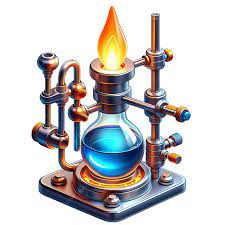AI in Chemical Synthesis-oct05
AI in Chemical Synthesis-oct05
Chemistry
SureshA Ayyanar
AI Chemical Synthesis | Application of machine learning
Artificial intelligence (AI) in chemical synthesis refers to the application of machine learning (ML) and deep learning (DL) techniques to optimize, predict, and automate chemical reactions. This emerging field combines computer science, chemistry, and engineering to improve the efficiency and effectiveness of chemical synthesis.AI algorithms can be trained on large datasets of chemical reactions to identify patterns and relationships between reactants, conditions, and outcomes. This enables the prediction of optimal reaction conditions, yields, and product properties, reducing the need for trial-and-error experimentation. Techniques such as neural networks and gradient boosting machines can be used to model complex relationships between variables and predict outcomes with high accuracy.One key application of AI in chemical synthesis is in the design of new molecules with specific properties. AI algorithms can generate novel molecular structures and predict their properties, such as solubility, stability, and bioactivity. This can accelerate the discovery of new materials, drugs, and agrochemicals. Additionally, AI can optimize reaction conditions, such as temperature, pressure, and solvent, to improve reaction efficiency and reduce waste.The integration of AI with robotic laboratory automation and flow chemistry enables the rapid experimentation and testing of predicted optimal conditions. This closed-loop approach, where AI, robotics, and experiments are tightly integrated, has the potential to revolutionize the field of chemical synthesis. It can accelerate the development of new chemicals, materials, and processes, while reducing costs, improving safety, and minimizing environmental impact.The development of AI in chemical synthesis requires high-quality datasets, robust algorithms, and seamless integration with experimental systems. Key challenges include data curation, algorithm selection, and domain adaptation. However, the potential benefits of AI in chemical synthesis are substantial, and ongoing research is expected to overcome current limitations and unlock new applications in fields such as pharmaceuticals, materials science, and energy.
Design of new molecules with specific properties, such as more efficient drugs or materials with unique characteristics.
Optimization of chemical reactions, including prediction of reaction outcomes, yields, and conditions.
Automated synthesis planning, enabling rapid generation of synthesis routes and identification of potential bottlenecks.
Real-time monitoring and control of chemical reactions, allowing for more precise and efficient synthesis.
Development of new catalysts and reagents, including prediction of their properties and behavior.
Identification of novel synthesis pathways, including those that may not have been explored previously.
Prediction of chemical properties, such as toxicity, solubility, and stability.
Design of new materials with specific properties, such as nanomaterials, polymers, and MOFs.
Optimization of downstream processing, including separation, purification, and formulation.
Integration with existing synthesis systems, enabling more efficient and streamlined synthesis workflows.

Artificial intelligence